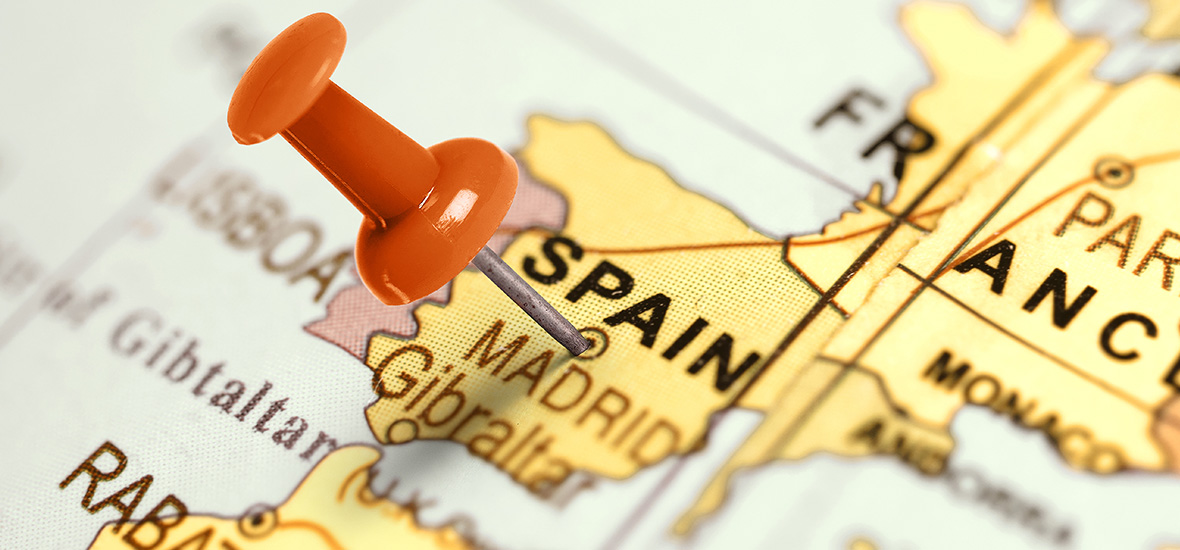Spain, a cherished destination for millions of travellers worldwide, has recently introduced new travel regulations that demand heightened levels of personal data sharing. Effective from December 2, 2023, these rules are causing ripples across the travel industry, with privacy advocates, tourists, and industry experts voicing concerns about their implications. Dubbed by some as the “Big Brother” law, these new requirements have sparked debates over their necessity, practicality, and long-term impact on the tourism industry with Spain’s new travel rules.
In this comprehensive exploration, we’ll break down what these regulations entail, the government’s rationale behind them, the potential challenges they pose, and how travellers can adapt to the evolving landscape.
A Closer Look at the Regulations
Under the new rules, travellers aged 14 and above must provide extensive personal information when booking accommodations or renting vehicles in Spain. The required details include:
- Personal Information: Full name, date of birth, nationality, passport number, and home address.
- Contact Information: Phone number and email address.
- Financial Information: Bank details for security deposits or pre-authorizations.
- Travel Companion Details: Names, relationships, and passport information of fellow travellers.
While the data collection process may seem straightforward, its scope and depth have raised eyebrows among travellers and privacy advocates alike.
The Government’s Stance
The Spanish government has justified these measures as part of its commitment to enhancing national security and public safety. Officials argue that detailed traveller information enables authorities to:
- Monitor potential threats effectively.
- Respond promptly to emergencies.
- Ensure a safer environment for residents and tourists.
Travel security measures are not unique to Spain. Many countries have implemented policies that require visitor information for similar purposes. However, the comprehensive nature of Spain’s requirements has drawn particular attention.
Traveller and Industry Concerns
Despite the government’s assurances, the new travel rules have generated significant concern among both travellers and the tourism industry.
Privacy Risks
The demand for sensitive data has led to fears about:
- Data Breaches: Large-scale data breaches are not uncommon, and the collection of extensive personal information raises the stakes. If this data were to be accessed unlawfully, it could lead to identity theft, financial fraud, or other malicious activities.
- Data Retention Policies: It remains unclear how long the collected information will be stored or the measures in place to secure it. Prolonged retention increases the likelihood of unauthorized access.
- Cross-Border Transfers: The transfer of personal data to third-party companies or other jurisdictions may weaken privacy protections due to differing laws and standards.
Practical Challenges
From an operational perspective, accommodation providers and car rental companies face the challenge of implementing the new requirements efficiently. These hurdles could result in:
- Longer Check-In Times: The process of collecting and verifying extensive traveller information may lead to delays during check-ins.
- Increased Administrative Burden: Businesses will need to invest in systems and staff training to comply with the regulations.
Potential Impact on Tourism
Spain’s tourism industry, which welcomed 17.8 million British visitors in 2022 alone, is a vital economic driver. Critics warn that these travel rules in Spain could deter tourists, prompting them to explore alternative destinations such as Portugal, Italy, or Greece.
A Guide to Navigating the New Travel Rules in Spain
For those planning to visit Spain, understanding and adapting to these regulations is essential. Here are some tips to navigate the changes:
1. Research and Prepare
Before booking, familiarize yourself with the data requirements of your chosen accommodation provider or car rental company. Having all the necessary information readily available will streamline the process.
2. Choose Reputable Providers
Opt for well-established businesses with strong reputations for data security. Reputable companies are more likely to adhere to strict data protection standards.
3. Ask Questions
If any data request feels excessive or unclear, don’t hesitate to inquire about its purpose and usage. Understanding why certain information is required can provide peace of mind.
4. Stay Updated
Regulations may evolve over time. Stay informed about the latest developments and seek guidance from reliable sources, such as official government websites or trusted travel agencies.
5. Consider Alternatives
If privacy concerns outweigh your enthusiasm for visiting Spain, consider exploring other destinations with fewer data-sharing requirements. Neighbouring countries in Europe offer comparable experiences in terms of climate, culture, and attractions.
Long-Term Implications
The introduction of these regulations signals a broader trend in global travel: the increasing emphasis on security. While Travel rules in Spain may initially seem intrusive, they reflect a growing acknowledgment among nations of the importance of knowing who enters and exits their borders.
Adapting to Change
As travellers and businesses adapt, some of the current challenges are likely to diminish. Accommodation providers will streamline their processes, and tourists may become accustomed to sharing more information as part of their travel routines.
Impact on Spanish Tourism
Spain’s enduring appeal as a travel destination lies in its unique blend of cultural heritage, scenic beauty, and vibrant atmosphere. While the new regulations may deter some visitors in the short term, many believe that Spain’s intrinsic allure will continue to draw tourists in large numbers.
Balancing Security and Privacy
The crux of the issue lies in finding a balance between the government’s responsibility to ensure security and the individual’s right to privacy. Travellers must weigh the benefits of visiting Spain against the perceived inconvenience of the new rules.
Protecting Personal Data
To mitigate risks, tourists should take proactive steps to safeguard their personal information:
- Use secure, encrypted channels when sharing data online.
- Opt for payment methods that offer added security, such as credit cards with fraud protection.
- Regularly monitor financial statements for unauthorized transactions.
Advocacy and Transparency
Continued dialogue between government officials, industry representatives, and privacy advocates is essential to refine the implementation of these rules. Transparency about data usage and robust protections will be key to gaining public trust.
Looking Ahead
The introduction of these new travel rules in Spain underscores the evolving nature of global travel. As technology advances and security concerns persist, similar measures may become more common in other countries. Travellers will need to remain informed and adaptable in this changing landscape.
Ultimately, the decision to visit Spain depends on individual priorities. For some, the country’s unparalleled attractions will outweigh the added complexity of the new rules. For others, alternative destinations may offer a more straightforward travel experience.
What remains clear is that Spain’s tourism industry is at a pivotal moment. By addressing privacy concerns and streamlining the implementation of its ‘Big Brother Law, the latest travel rules in Spain, the country has the opportunity to maintain its status as one of the world’s most beloved destinations.
The new travel rules in Spain have sparked a global conversation about the intersection of security and privacy in tourism. While the changes present challenges, they also highlight the evolving expectations of travellers and governments alike. For tourists planning to visit Spain, preparation and vigilance will be essential to ensuring a smooth and enjoyable experience.
As the world watches how Spain navigates this transition, its approach could set a precedent for other nations. Whether these measures ultimately enhance or hinder its tourism industry will depend on how effectively Spain balances its security goals with the privacy rights of its visitors.








